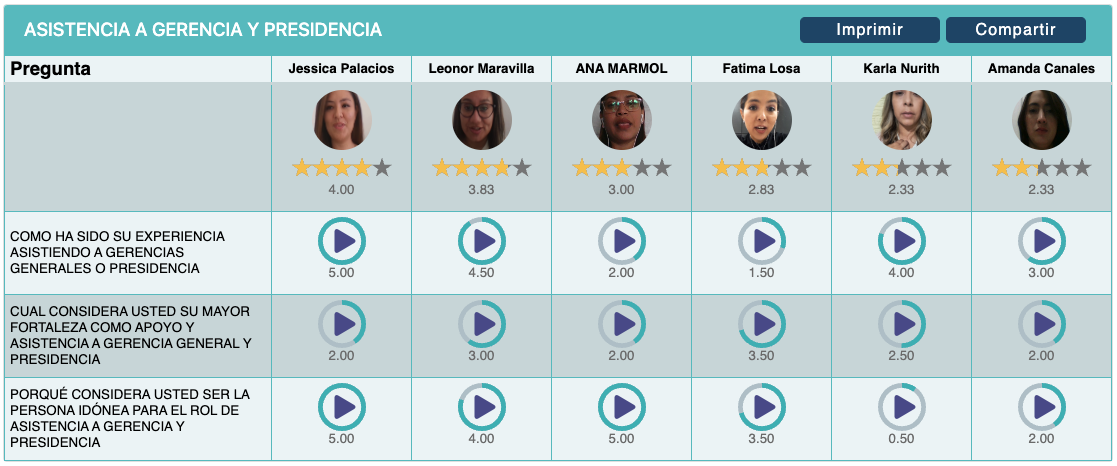I was really excited about talking to my next candidate. He had the right amount of experience for the position, his resume looked impressive, and he had worked at one of the major consulting firms. There was nothing I didn’t like about this guy from looking at his resume.
So I scheduled an interview and was finally going to talk to him today.
The interview was a Google Meet video interview, I was one minute early and started the meeting. The meeting was at 10:00 am, it was 10:05 am and no candidate, Ugh!
One of the tools I use to gauge candidates’ intangibles are the circumstantial things that happen around the interview. I remember when I was a consultant for IBM and was in charge of hiring test automation engineers. One of the things I liked to do was to walk by the lobby on my way to the restroom to take a look at the candidate and observe how he interacted with folks that passed by. Was the candidate friendly? Was he nervous? Was he early? Etc. The many intangibles that speak volumes about someone when they are not on stage.
When I passed by, I smiled and said “Hi”, to which he looked away and did not respond. Not necessarily a disqualifying criteria, but something to look deeper when doing the full interview.
Back to my Google Meet interview from my ideal candidate.
Finally my Google Meet interview showed up at 10:10 am, 10 minutes late. His excuse was that his microphone and camera were not working, and he had to reboot the system, etc. I understand things happen. But unfortunately, it left a bad taste in my mouth, so the interview started on a sour note.
I always think, “Why didn’t you come a little earlier to the meeting to check your camera/microphone?” “Is this interview not important to you?”
This was not the first time this had happened to me, and in reality, it only takes a good answer to a key question for me to forget that the meeting started late, so I was hopeful.
The meeting started and I could tell he was nervous. I tried making small talk to ease the nerves, but somehow it did not work. His constant looking away from the screen, his hesitation when I asked questions seemed odd, not your typical nervousness, something was not right and now I really wanted to find out why.
I have a couple of “go-to” questions that I ask candidates to see if they really know the core competencies required for the position, and here is when it all unraveled. I like to ask my candidates to rate themselves from 1 – 10 as it relates to their knowledge of Java. Most people should rate themselves between 5 – 6, and if you rate yourself above 7, then you better know a lot and should not hesitate when answering questions.
My candidate rated himself a 9. So I asked my following question, “what does the ‘invoke’ statement do?”
He gave a very generic answer as to how classes are instantiated and can be assigned to a variable. Which is not what I was asking for. When pressed to qualify his answer, he fumbled around and tried his best to impress me by dropping terms that were unrelated to the question. As if in the middle of his verbal diatribe he would stumble across a truth that I could say “This guy knows what he is talking about”.
Some people think that if they talk a lot they will appear intelligent, which couldn’t be further from the truth. There is a saying in Spanish that says “El pez por su boca muere”, the equivalent English would be “The fish dies by its mouth”. Or the English version “Loose lips sink ships”.
The candidate was a terrible disappointment. I’m sure you can relate.
So, why are non-AI interviewing tools important? The simple answer is, because they save us from wasting time.
Most recruiters understand this and do quick phone interviews, which works great, but the information gathered at a simple 10 minute interview is not sufficient enough to call a candidate qualified to talk to the employer. I’ve personally experienced candidates that come from recruiters that don’t make my initial cut.
I want you to imagine all the time it took to arrive at the conclusion that your purple squirrel is not purple, and it is not a squirrel at all.
If I had used a pre-screening tool like AskAway, It would have helped me with the following:
- I would have been able to interview more candidates at once. This is due to the Candidate Play Grid. A grid where all candidates and questions are displayed in a grid and you get to choose and rate the answers provided by the candidate.
- The moment he started dancing around the question, I would have rated his answer and moved on to the next question. I don’t have to sit through an answer that has no value.
- When I find a candidate that answers the questions correctly, I can replay the video with the answer, take notes, and then share the videos with my team, or the client, and let them weigh in on the decision to move to the next round.
If you still say “But I like to interview everyone … just in case”, then you have your priorities confused. You first need to qualify your candidates before you spend time talking to them.
I remember talking to a candidate who said they had experience with C, C#, Javascript, Python, Java, Perl, Jenkins, etc. I asked a simple question, “Please describe the application you wrote in those languages?”. The answer was “Well, I didn’t develop an application on those platforms, I tested/used applications that were written in those languages”. Really? This is akin to saying “I can fly Boeing 747s” when all you’ve really done is to fly from New York to London in a 747.
This is why I wholeheartedly support the use of tools like AskAway for pre-screening interviews.
In AskAway, you create an interview event with pre-qualifying questions from the employer. These questions can originate from either the department, the hiring manager, or the job description. So when creating a pre-screening interview, you just provide the values for those three parameters and you have yourself a nice set of pre-screening questions.
The beauty of this type of interview is that it takes no time to set up, it is fair since all applicants are asked the same questions, it provides a great auditable record, and the decision to continue with the interview can be made by sharing the candidates videos with your team members. In the case of recruiters, you can share those videos with the employer and they get to pick who they like and want to continue with the face-to-face interview.

Do you think your competition is doing that? Probably not. This is where you get your competitive advantage.
What is not to like?
If you still think that this solution is not applicable to your needs, it may be due to a lack of firsthand experience with the technology or a resistance to an innovation that will likely be standardized among your professional peers, potentially resulting in losing a competitive edge.
Embracing AskAway and similar technologies isn’t just about keeping up with the times. It’s about leading the charge in making recruitment as efficient and effective as possible. The ability to dive deep into a candidate’s skills and personality before a face-to-face interview can save hours, help avoid bias, and make sure everyone’s on the same page. In today’s fast-moving world, sticking to outdated methods can leave you behind. Tools like AskAway aren’t just the future of hiring—they’re the here and now, offering clear benefits that are hard to ignore. Why wait to start?
Let me invite you to create your own AskAway account. You don’t need a credit card and you will be given 10 interviews for free.
#HRtech, #recruitment, #jobinterviews, #hiring, #techtools, #TechHiring, #RemoteHiring









